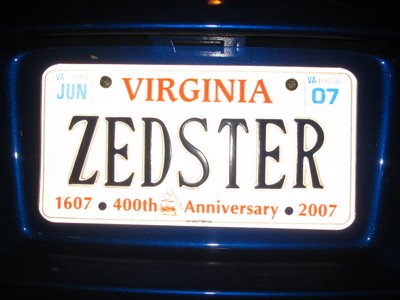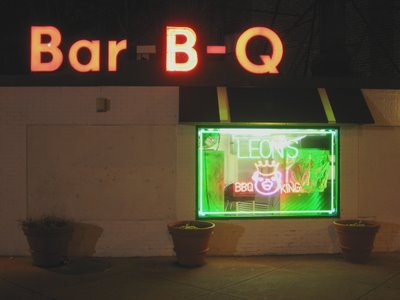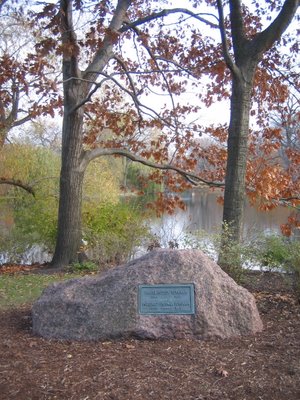In simpler times, it was possible to identify where one stood on certain fundamental metaethical issues by finding out how one would answer the question 'do you think ethical judgments are truth-evaluable?'. Non-cognitivists argued that we should deny truth-evaluability to ethical judgments; cognitivists argued (largely in response to non-cognitivist attempts to deny truth-evaluability) that there are important reasons why it is wrong to deny truth-evaluability to ethical judgments. The simplicity of this manner of demarcating the argumentative space was nice, not just because it was clear-cut, but also because it highlighted some of the characteristic tendencies of each side: non-cognitivists were radical philosophers unafraid to question aspects of our ordinary practice of trafficing in ethical judgments (such as our ordinary practice of using the words 'true' and 'false' to evaluate them) in order to provide an illuminating account of what's distinctive about ethical judgment as such, whereas cognitivists were traditionalists worried about the possibility that revisionary philosophical accounts of ethical judgment may distort our self-understanding and thereby erode many important aspects of ordinary ethical practice (such as its use of the words 'true' and 'false').
Things are no longer so simple. With the widespread acceptance of minimalism about truth has come widespread acceptance of minimalism about truth-evaluability. Blackburn and Gibbard, for instance, two of the most important contemporary advocates of expressivism—a direct descendant of non-cognitivism—both insist that they think our ordinary practice of using the words 'true' and 'false' to evaluate ethical judgments is perfectly in order. In fact, they see their positions as attempts to explain why this practice is perfectly in order. (Sadly, one of the better ways to identify where one stands on fundamental metaethical issues today is to ask whether one thinks that a philosophical account of the truth-evaluability of ethical judgments is needed: answering 'yes' more than likely puts one on the non-cognitivist side of things, whereas cognitivism—once again a reactionary position—has become the view that no such philosophical account is needed. This is sad because it equates cognitivism with not caring to offer a philosophical account of ethical judgment.) Thus, it is no longer possible to distinguish opponents in contemporary metaethical debate by asking whether or not someone thinks ethical judgments are truth-evaluable, because everyone thinks they are truth-evaluable.
I think the widespread acceptance of minimalism about truth has had its benefits—for instance, it has revealed the central importance of truth-functional inference for ethical judgment, which has undermined once and for all many earlier forms of non-cognitivism (such as Stevenson’s and Ayer’s)—but it has also come with a cost. The cost is that we have lost sight of the honorific nature of evaluating a judgment as true. Minimalism about truth holds that the meaning of ‘it is true that Nat is an Anglophile’ is the same as the meaning of ‘Nat is an Anglophile’. And while this is surely true for many importance intents and purposes, it flat out ignores an obvious functional or pragmatic difference that exists, at times, between utterances asserted to be true and utterances merely asserted. The difference is that we sometimes reserve the practice of explicitly declaring an utterance to be true for utterances that we are particularly inclined to defend, were this truth questioned. And I simply do not think that this is true (sorry for the overuse of the word ‘true’—it’s unavoidable) of everything that we’re willing to extend a minimal notion of truth to. Consider the following pair of utterances:
(i) Nutella is delicious.
(ii) Nutella is not delicious.
(Similar pairs of utterances, invoked with similar intentions as my own, but eventually put to a different use, can be found in Crispin Wright’s ‘Truth and Objectivity’, Max Kolbel’s ‘Truth Without Objectivity’, and John MacFarlane’s ‘How to be a Relativist about Truth’.)
We can easily apply a minimalist notion of truth to either of these utterances. In fact, I think we’re especially inclined to accept minimalism about truth for examples such as these in which the honorific character of ascriptions of truth is conventionally lacking. But I think it is important to note that were someone to disagree with us about, say, (i), we wouldn’t, ordinarily, respond by declaring ‘but it is true that Nutella is delicious’. And we wouldn’t do this because, I think, it would entail treating (i) as possessing a kind of warrant that it more than likely lacks. Of course, if one took oneself to have good, perhaps definitive, reasons for asserting (i) and expecting others to agree with one because of these reasons, then I think one would be willing to declare ‘but it is true that Nutella is delicious’. And that is precisely my point: in ordinary practice, we reserve the honorific use of truth for cases in which we take ourselves to possess sufficient justification for our utterances such that, were the utterances questioned, we could justify them by reference to reasons that should suffice to allow for our interlocutors to assert the utterances themselves, without qualification.
I realize that’s a mouthful. But I hope my point is clear. My point is that with regard to (i) and (ii) we don’t normally think of ourselves as possessing this kind of warrant (which is not to say that warrant is lacking altogether: the kind of warrant that these utterances do have is that Nutella tastes good, or doesn’t, to the utterer). And I think that our unwillingness to apply the honorific notion of truth to these utterances reveals the lack of this kind of warrant.
To return to my original topic—the age-old debate between non-cognitivists (and their descendants) and cognitivists in metaethics—I think that our willingness to apply this honorific notion of truth to ethical judgments might just give us a new way to identify a substantive debate in contemporary metaethics. The question to ask, in order to identify where one stands in this debate, would be whether or not one thinks that this honorific notion of truth is applicable to ethical judgments. Those inclined to think that we often make such judgments without sufficient warrant to convince others to assert these utterances themselves, will deny that such an honorific notion of truth is applicable to ethical judgments (right now, this is where I am tempted to place myself). Those inclined to think that we often make such judgments with sufficient warrant, will insist that the honorific notion of truth is applicable.
What’s particularly useful about this question, I think, is that it allows us to move away from the question currently used to identify one’s position in metaethics: i.e., whether one is interested in trying to give an account of ethical judgment. That question makes cognitivists out to be lazy reactionaries, unwilling to offer a positive account of their own. My question, on the other hand, gives them something positive to argue for: namely, the importance of the use of the honorific notion of truth for ethical debate. That should suffice to get them out of their therapeutic armchairs.
I’m interested to hear what others think of this proposal, as well as where others stand with regard to the question itself (i.e., of the use of the honorific notion of truth with regard to ethical judgments).
[This post was originally published in Nov. 2005, but I deleted the original posting so I'm re-publishing it here now.]


















